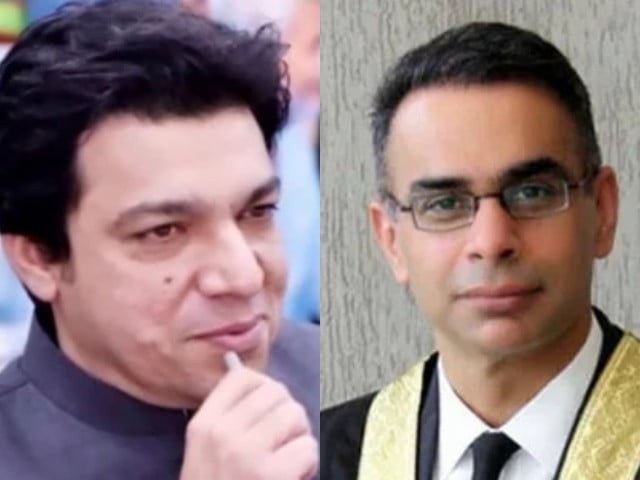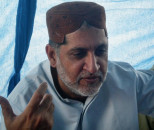IHC responds to Vawda on Justice Babar Sattar’s citizenship
Court clarifies Constitution does not bar judge from having citizenship or residence permit of another country

The Islamabad High Court (IHC) responded on Thursday to Senator Faisal Vawda's letter seeking clarification on Justice Babar Sattar’s citizenship.
The court clarified that as per the Constitution of Pakistan, citizenship or residence permit of another country does not bar a lawyer from becoming a judge.
It added that details about dual citizenship are not sought from any lawyer being considered for the position of a high court judge.
The court's reply further noted that Justice Athar Minallah clarified this point during the proceedings of the suo moto case on the six IHC judges' letter.
It further mentioned that the matter of Justice Sattar's green card was discussed in the Supreme Judicial Council (SJC), which later approved his appointment as IHC judge, adding that the court does not keep a record of the discussions held in the judicial council.
Justice Sattar in the crosshairs
IHC judge Justice Sattar was the target of a smear campaign on social media and confidential information about him, including travel documents of him, his wife, and children, was leaked.
The campaigning began following six IHC judges writing a letter to the SJC, on March 27, complaining about intelligence agencies meddling in judicial affairs.
Earlier this week, Justice Sattar reportedly wrote a separate letter to IHC Chief Justice Aamer Farooq, disclosing that a 'top official' from the security establishment threatened him to back off from scrutinizing surveillance procedures in the audio leaks case.
A day later, Senator Vawda addressed a press conference, demanding Justice Sattar present evidence supporting his allegations of interference in judicial matters and that he was being ‘targeted’ and 'threatened'.
The senator questioned why the judge did not bring the matter to the public at the time it happened.
Read Five more SC judges receive threatening letters
“Article 19 of the Constitution gives every Pakistani the right to seek information. I, as a senator, seek details from you (Justice Sattar),” said Vawda.
“No work is finished until the paperwork is done.”
Vawda hoped the IHC judge would provide evidence soon and said several questions would arise if Justice Sattar failed to do so.
He also stressed that it was incumbent on the judge and the high court to clear the air, and questioned whether the absence of written documentation regarding his financial matters, if indeed true, raised doubts not only about him but also about the former IHC CJ - Justice Athar Minallah.
In an earlier interview to a private tv channel, the senator said he did not know Islamabad High Court’s Babar Sattar personally but felt that that he was a “better person or judge" as he was “appointed during their government”.
Vawda said he heard many “negative things” about Justice Sattar within his cabinet. The senator asserted his belief that when criticism is directed at an individual, there should be a discernible "spark" within them.
Referring to Justice Sattar and other judges on the Lettergate scandal, Vawda questioned why the judges’ conscience remained dormant during the demolition of Nasla Tower.
“When sessions court judge’s wife tortured the daughter of a poor person, the high court should have taken notice of it.”
Vawda said news was circulating on social media that Justice Sattar was running a school chain. “We don’t know if it is true or false. Justice Sattar should come and clear himself.”
Lettergate scandal
In a shocking move on March 27, six judges of the IHC — Justice Mohsin Akhtar Kiyani, Justice Tariq Mehmood Jahangiri, Justice Babar Sattar, Justice Sardar Ejaz Ishaq Khan, Justice Arbab Muhammad Tahir, and Justice Saman Rafat Imtiaz - penned a letter to the SJC, led by Chief Justice Qazi Faez Isa, expressing concerns about the "interference" of intelligence agencies in the affairs of the courts.
The judges underscored the absence of clear guidelines within the council's prescribed code of conduct for judges regarding the appropriate response to incidents that encroach upon judicial independence.
"We, therefore, request that a judicial convention be called to consider the matter of interference of intelligence operatives with judicial functions and/or intimidation of judges in a manner that undermines the independence of the judiciary,” the letter added.



















COMMENTS
Comments are moderated and generally will be posted if they are on-topic and not abusive.
For more information, please see our Comments FAQ